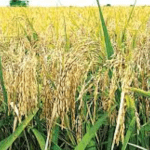Some Traders and Farmers in Kano State, North West Nigeria have lamented lack of storage facilities for their products.
The problem has for many years increased loss and waste of their food products.
Reducing food losses and waste is essential in a world where the number of people affected by hunger has been slowly on the rise since 2014.
Tons and tons of edible food are lost or wasted every day.
The International Day of Awareness of Food Loss and Waste, comes around this year with the theme “Reducing food loss and waste: Taking Action to Transform Food Systems”
It is a call to action for both the public (national or local authorities) and the private sector (businesses and individuals), to prioritize actions and move ahead with innovations to reduce food loss and waste towards restoring and building back better and resilient-ready, food systems.
While the day is marked, traders of products like tomatoes in Kano have continued to face significant loss due to the absence of adequate storage facilities.
Some traders display their damaged tomatoes for hours at the popular Yankaba market with no buyers.
This situation is repeated every day as many tomatoes are wasted leaving traders to count their losses.
Fresh farm produce like tomato starts losing its nutrient value almost immediately after harvest.
Proper handling post-harvest and refrigeration, helps to slow down deterioration, ensuring that it is still fresh and nutritious when it reaches the consumer.
Some traders have since resorted to using plastic crates to preserve the product.
The solution is already yielding positive results as the number of damages are reducing but they call on the government to provide more storage facilities to reduce waste and loss of the products.
Rice and wheat and other products also witness losses between harvest and retail.
In Chiromawa farmers are currently harvesting their rice. The use of the combine harvester is reducing drastically the level of loss.
Reducing food loss and waste can play a key role in the transformation of agri-food systems by increasing the availability of food, contributing to food security, healthy diets, and building resilience.
According to the World Bank, Nigeria loses and wastes 40 percent of its total food production every year.
This loss accounts for 31 percent of the country’s total land use and accounts for 5 percent of its greenhouse gas emissions.
Between 691 and 783 million people faced hunger in 2022, with a mid-range of 735 million (FAO, 2023).
While hunger and food insecurity continues, an estimated 13 percent of the world’s food is lost in the supply chain from post-harvest prior to retail (FAO, 2022); a further 17 percent of food is wasted in households, food services and in retail (UNEP, 2021).
Both the traders and farmers are optimistic that if the government supplements their efforts by playing a role with the provision of good road networks, it will ensure that farm produce does not spend more time than necessary in transit.
Stable power supply will lower the cost of operating cold stations for traders to store their goods, as well as enabling consumers to properly store their fruits and vegetables after purchase.














